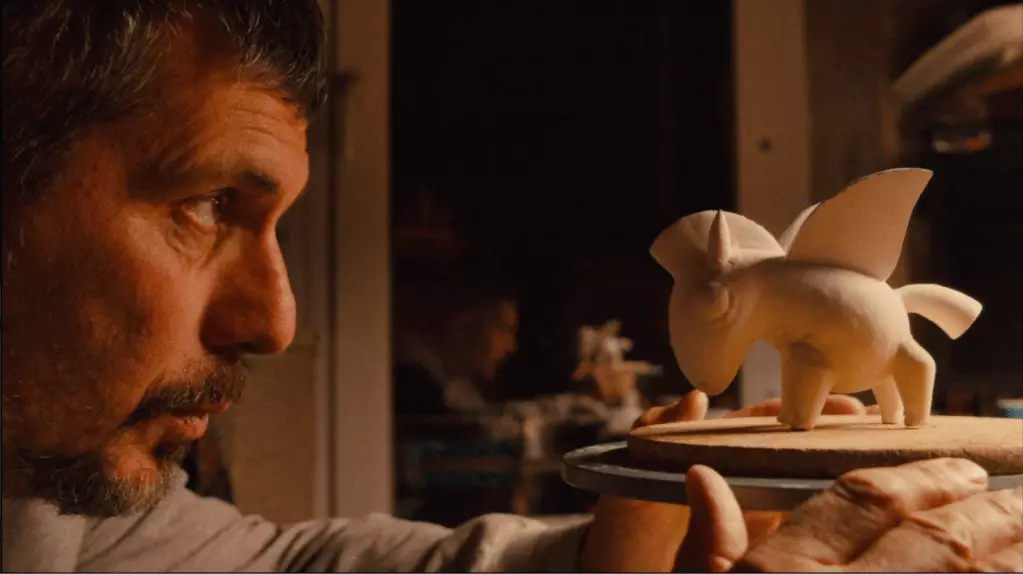In a world increasingly shadowed by conflict, the documentary “Porcelain War” provides a poignant exploration of Ukraine’s tumultuous landscape through the lens of art. The film, directed by Brendan Bellomo and Slava Leontyev, has been recognized with an Oscar nomination and has garnered the Documentary Feature Award, highlighting its significance in the discourse surrounding the ongoing war in Ukraine. Leontyev, a native Ukrainian and one of the film’s primary subjects, symbolizes the resilient spirit of his homeland, emphasizing that while Ukraine may be easy to shatter, its essence remains indomitable.
Leontyev poignantly states, “the camera is far more powerful than a rifle,” a sentiment that recasts the traditional concept of resistance in warfare. This declaration reflects a broader cultural narrative where art becomes a critical tool in the fight against oppression. By choosing to wield a camera instead of a firearm, Leontyev presents a unique perspective on resistance—one that champions creativity over destruction. His commitment to using art to document and respond to adversity bridges the emotional gap between the spectator and the dire realities faced by many in Ukraine.
The Role of Prominent Voices
With figures such as Guillermo del Toro voicing their support for “Porcelain War,” the film’s message resonates even more profoundly. During a recent virtual Q&A, del Toro articulated a significant concern regarding the current global environment, warning that art might be undermined in its value and perceived as superfluous. His remarks underscore the crucial intersection between creativity and activism, reinforcing the notion that artistic expression can be a formidable form of resistance. This sentiment reverberates through the testimonies of various artists and filmmakers who have rallied behind the project, forming an alliance aimed at elevating the discourse around the role of art in times of conflict.
A Timely Exploration Amidst Political Turmoil
As the political landscape fluctuates—with notable events such as Donald Trump’s appointment to the Kennedy Center for the Performing Arts—del Toro’s insights about the implications for artists carry weight. The struggle for artistic integrity and recognition within the context of political machinations raises essential questions about the future of cultural expression. The delicate balance between art and politics becomes especially relevant as “Porcelain War” embarks on a global campaign of screenings and discussions, aiming to foster awareness and solidarity through shared experiences.
With Oscar voting poised to begin, the film’s creators are embracing a multi-faceted approach to engage audiences through various platforms, including virtual Q&As and in-person events. The notable participation of luminaries from the film industry such as Chris Columbus and Julie Taymor underlines the widespread recognition of the film’s importance. As it travels across borders, “Porcelain War” invites viewers to reflect on the power of art as a medium for resistance, solidarity, and healing—a sentiment that rings true in any struggle against oppression.
“Porcelain War” transcends mere documentation of a conflict; it serves as a testament to the unyielding spirit of a people and the vital role art plays in articulating their narratives. In a world fraught with challenges, this film stands as a beacon of hope, reminding us that even in the face of adversity, creativity can flourish, echoing the resilience of Ukraine.

